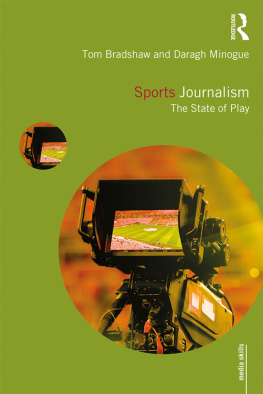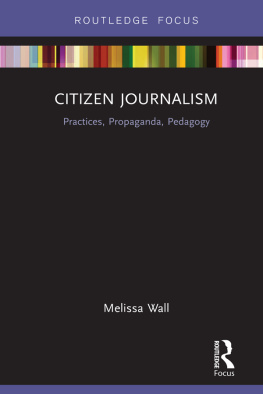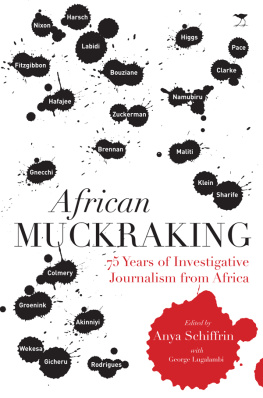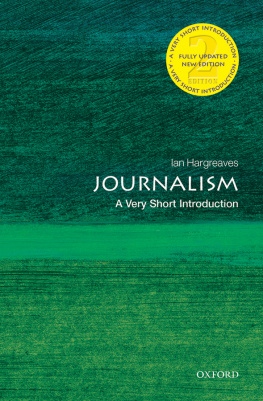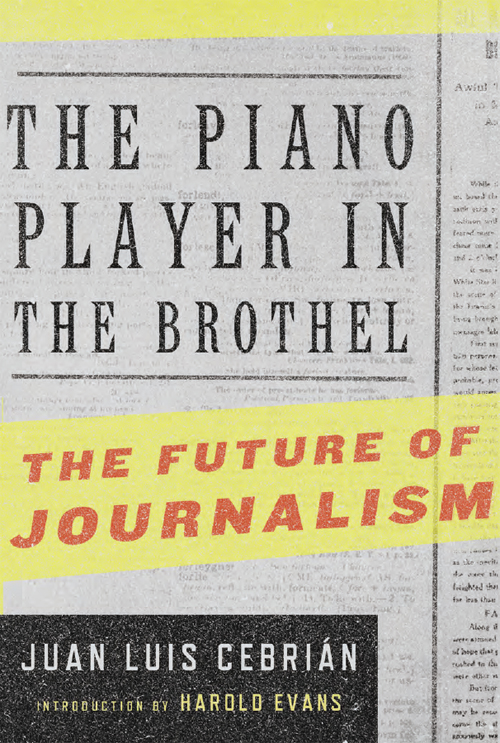IN 1972 WASHINGTON police discovered a break-in at the headquarters of the Democratic Party. This apparently minor episodea wiretapping operationwould lead to arguably the greatest confrontation between political power and the media in U.S. history. By the time the episode was over in August 1974, when President Nixon resigned, the name of this upscale office complex in the District of Columbia would be lodged not only in Americas psyche, but also in the annals of journalism.
When Katharine Graham, who had inherited the Washington Post from her husband, was asked to call off her reporters from the investigation of White House involvement, the Posts lawyers and managers repeatedly warned about the dangers of confronting the government: shareholder value and advertising revenue would decline, putting the companys television licenses at risk. Graham, who had faced a similar decision a year earlier with the Pentagon Papers, did not flinch. She resorted to capital markets for financial backing and lent her full support to her executive editor, Ben Bradlee, and his team.
A newspaper is a commercial enterprise, and as such it must further the interests of its owners and clients. Yet it is also a voice of the people. It must place its readers interests before any other. Such was the prevailing philosophy at the time, one that made thousands of journalists throughout the world proud, if not always successful.
Watergate was a reminder of journalisms role as a watchdog against corruption and has come to symbolize journalistic independence, a check against political power. The idea of journalism as a counterpower emerged after Watergate, a theory formulated by then French president Valry Giscard DEstaing and subsequently taken up by political scientists. Yet I am not sure that todays media is anything more than an appendage of power, or perhaps powers afterglow.
An independent media is a myth, which is fine, perhaps necessary, as long as that myth doesnt become dogma, for the media occasionally shows contempt for individual rights and often acts in arbitrary ways. Journalism in general, and U.S. journalism in particular, has changed substantially since Watergatefrom technological innovation to the structure of ownership.
Electronic media has forced newspapers to cut back on analysis and opinion while increasing the number of pages and color photos, first in advertising and later in content. Legendary newspapers, like the London Times, have transformed from top-quality publications with sober appearancespartly embodied in the papers special textureto merry outfits of sensationalism. Meanwhile, the evening edition has become an anachronism, a victim of television.
The digital media has brought about even more fragmentation as Internet readers increasingly seek to customize their news. Size has become necessary for survival. Family-owned newspapers have been gobbled up, and media companies now own leisure and entertainment units as part of their portfolios. Wall Street noticed all of this long ago; going public soon became the order of the day.
Today, the presss independenceso-called freedom of expressionhas further been encroached upon by new realities and threats. The war against terrorism is among the most widely used clichs employed by governments to justify human rights violations. More recently, the economic crisis has inflamed the censoring zeal of thousands of bureaucrats throughout the world. Regulatory agencies in charge of overseeing capital markets seem more interested in limiting freedom of information than catching culprits of greed. Such is the case of the Comisin Nacional del Mercado de Valores (Spains equivalent of the U.S. Securities and Exchange Commission). Absurdly, in lawmaking delirium, it pretends to punish rumor-mongers, an endeavor as commendable as it is futile: insidious debates ensue as to when a rumor becomes news or can be dismissed as gossip.
Bill Kovach and Tom Rosenstiel, founders of the Committee of Concerned Journalists, spent years talking to colleagues, readers, businessmen and women, advertisers, and ordinary citizens. They attempted to identify the essential elements of their professionlike fire, water, air, and earth for the ancients. Their conversations and experiences were gathered in the book The Elements of Journalism, in which they show how journalism, even on the Internet, still adheres to a few basic principles that not only identify it as a profession, but also demand a certain commitment from its practitioners:
Journalisms first obligation is to the truth.
Its first loyalty is to citizens.
Its essence is the discipline of verification.
Its practitioners must remain independent.
It must work as an independent monitor of power.
It must provide a forum for public criticism and compromise.
It must strive to make the significant interesting and relevant.
It must keep the news comprehensive and proportional.
Its practitioners must be allowed to exercise personal conscience.
It would be difficult to say more with fewer words. Of course these nine rules can easily be summarized, as with Moses and the Ten Commandments: journalism must be truthful and independent.
Truthfulness demands that journalists attempt to report events faithfully. Data should not be manipulated, nor doctored for convenience; verification must be strict, and journalists must be exhaustive in proof, plural in point of view, careful in nuance. Above all, they must acknowledge mistakes and be prepared to pay for them. Independence implies fulfilling the social role of journalism, not administering truth according to the pressures and conveniences of a politician, nor bearing witness for judges. Journalists must be critical, vigilant, and willing to engage, yet they must not let the passion for words smother the passion for truth.
Freedom of expression is essential in a thriving democracy, perhaps more so than political parties or parliamentary representation. Everyone knows this, yet selfish politicians have always hidden behind their office rather than honor the will of their constituents. Election as a blank check is unwarranted. Politicians must honor participatory democracy, must manifest the will of the people. Nixonian arrogance must be avoided. We all know this and yet so many go astray.
I met the former president a year after the Watergate scandal broke, when one of his books was being published in Spain. He seemed bitter, resentful, and stubborn. He didnt seem to understand how his foreign policy achievements had been tarnished by his attempts to discredit his rivals. I also met Ben Bradlee over dinner one summer night in Paris. He was still youthful and happy at eighty years old, and teased us about disclosing the identity of Deep Throat, the main source in the Watergate case, who died in late 2008. Someone commented on the personal lives of Woodward and Bernstein.
Bernstein had become something of a guru, giving lectures and writing books like His Holinessa biography of Pope John Paul II (Karol Wojtyla)which was recommended to me by Gabriel Garca Mrquez, and which I strongly recommend to anyone interested in the Catholic Churchs worldly power. Woodward continued working as a reporter after Watergate, apparently with the same enthusiasm and determination of his youth, which led him to become one of the most respected and feared journalists in his city. A few years ago Woodward and Bernstein decided to sell their notes, recordings, and private documents from the Watergate investigation. They received $5 million.
The contribution of Watergate to the history of journalism has been very important, yet its mythical character can be problematic. Colleagues have become obsessed with forcing heads of state to resign, an obsession absent from the principles listed above. Such zealous pursuits seldom serve the public interest, and often leave newspapers and journalists looking provincial and marginal in the eyes of the international media. This has certainly been the case in Spain.


